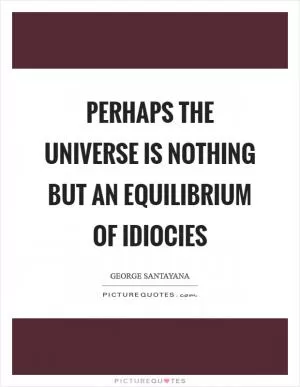Even under the most favorable circumstances no mortal can be asked to seize the truth in its wholeness or at its center

Even under the most favorable circumstances no mortal can be asked to seize the truth in its wholeness or at its center
George Santayana, a Spanish-American philosopher, poet, and novelist, was known for his profound insights into human nature, aesthetics, and the nature of reality. One of his most famous quotes is, “Even under the most favorable circumstances no mortal can be asked to seize the truth in its wholeness or at its center.” This statement reflects Santayana’s belief in the limitations of human understanding and the complexity of truth.Santayana’s philosophy is deeply rooted in skepticism and a recognition of the inherent limitations of human knowledge. He believed that truth is a multifaceted and elusive concept that cannot be fully grasped by any individual. In his view, truth is not a fixed and absolute entity, but rather a subjective and ever-changing phenomenon that is shaped by individual perspectives and experiences.
Santayana’s statement also highlights the idea that truth is not something that can be easily captured or understood in its entirety. He believed that truth is a complex and multifaceted concept that is constantly evolving and shifting. As such, it is impossible for any mortal to fully comprehend the truth in its entirety or at its center.
Furthermore, Santayana’s statement can be interpreted as a call for humility and intellectual modesty. He believed that humans should approach the search for truth with a sense of humility and an awareness of their own limitations. By acknowledging the complexity and elusiveness of truth, individuals can cultivate a more nuanced and open-minded approach to knowledge and understanding.
Overall, Santayana’s quote encapsulates his deep skepticism towards the possibility of fully grasping the truth. He believed that truth is a complex and multifaceted concept that is beyond the reach of mortal understanding. By embracing the limitations of human knowledge and approaching the search for truth with humility and intellectual modesty, individuals can gain a deeper appreciation for the complexity and richness of the world around them.












 Friendship Quotes
Friendship Quotes Love Quotes
Love Quotes Life Quotes
Life Quotes Funny Quotes
Funny Quotes Motivational Quotes
Motivational Quotes Inspirational Quotes
Inspirational Quotes